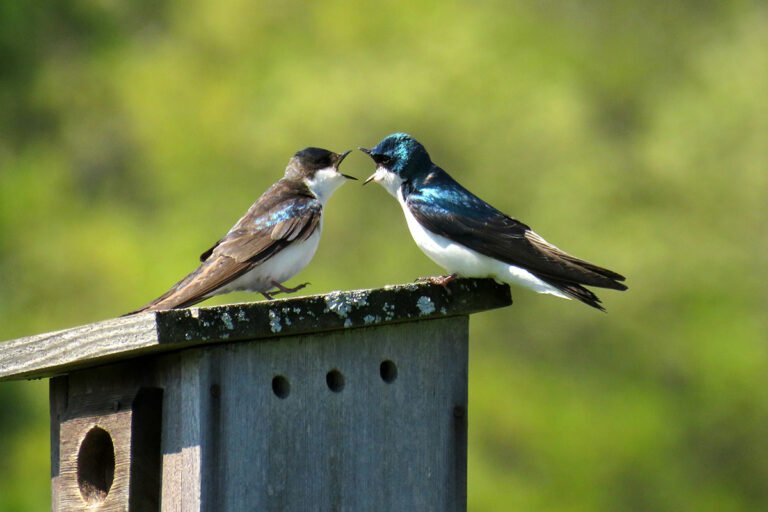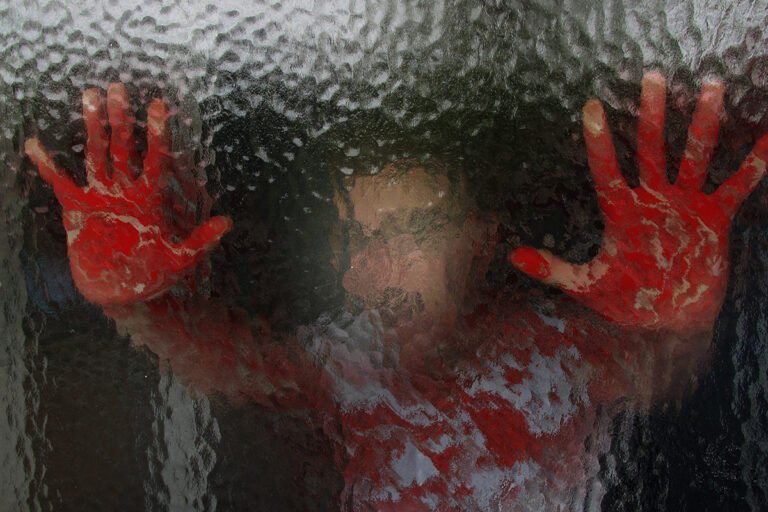The Song of Deborah and Barak
5 Then sang Deborah and Barak the son of Abinoam on that day:
“That the leaders took the lead in Israel,
that the people offered themselves willingly,
bless the LORD!
“Hear, O kings; give ear, O princes;
to the LORD I will sing;
I will make melody to the LORD, the God of Israel.
“LORD, when you went out from Seir,
when you marched from the region of Edom,
the earth trembled
and the heavens dropped,
yes, the clouds dropped water.
The mountains quaked before the LORD,
even Sinai before the LORD, the God of Israel.
“In the days of Shamgar, son of Anath,
in the days of Jael, the highways were abandoned,
and travelers kept to the byways.
The villagers ceased in Israel;
they ceased to be until I arose;
I, Deborah, arose as a mother in Israel.
When new gods were chosen,
then war was in the gates.
Was shield or spear to be seen
among forty thousand in Israel?
My heart goes out to the commanders of Israel
who offered themselves willingly among the people.
Bless the LORD.
“Tell of it, you who ride on white donkeys,
you who sit on rich carpets
and you who walk by the way.
To the sound of musicians at the watering places,
there they repeat the righteous triumphs of the LORD,
the righteous triumphs of his villagers in Israel.
“Then down to the gates marched the people of the LORD.
“Awake, awake, Deborah!
Awake, awake, break out in a song!
Arise, Barak, lead away your captives,
O son of Abinoam.
Then down marched the remnant of the noble;
the people of the LORD marched down for me against the mighty.
From Ephraim their root they marched down into the valley,
following you, Benjamin, with your kinsmen;
from Machir marched down the commanders,
and from Zebulun those who bear the lieutenant’s staff;
the princes of Issachar came with Deborah,
and Issachar faithful to Barak;
into the valley they rushed at his heels.
Among the clans of Reuben
there were great searchings of heart.
Why did you sit still among the sheepfolds,
to hear the whistling for the flocks?
Among the clans of Reuben
there were great searchings of heart.
Gilead stayed beyond the Jordan;
and Dan, why did he stay with the ships?
Asher sat still at the coast of the sea,
staying by his landings.
Zebulun is a people who risked their lives to the death;
Naphtali, too, on the heights of the field.
“The kings came, they fought;
then fought the kings of Canaan,
at Taanach, by the waters of Megiddo;
they got no spoils of silver.
From heaven the stars fought,
from their courses they fought against Sisera.
The torrent Kishon swept them away,
the ancient torrent, the torrent Kishon.
March on, my soul, with might!
“Then loud beat the horses’ hoofs
with the galloping, galloping of his steeds.
“Curse Meroz, says the angel of the LORD,
curse its inhabitants thoroughly,
because they did not come to the help of the LORD,
to the help of the LORD against the mighty.
“Most blessed of women be Jael,
the wife of Heber the Kenite,
of tent-dwelling women most blessed.
He asked for water and she gave him milk;
she brought him curds in a noble’s bowl.
She sent her hand to the tent peg
and her right hand to the workmen’s mallet;
she struck Sisera;
she crushed his head;
she shattered and pierced his temple.
Between her feet
he sank, he fell, he lay still;
between her feet
he sank, he fell;
where he sank,
there he fell—dead.
“Out of the window she peered,
the mother of Sisera wailed through the lattice:
‘Why is his chariot so long in coming?
Why tarry the hoofbeats of his chariots?’
Her wisest princesses answer,
indeed, she answers herself,
‘Have they not found and divided the spoil?—
A womb or two for every man;
spoil of dyed materials for Sisera,
spoil of dyed materials embroidered,
two pieces of dyed work embroidered for the neck as spoil?’
“So may all your enemies perish, O LORD!
But your friends be like the sun as he rises in his might.”
And the land had rest for forty years.
(ESV)
Judges 5 Commentary
Judges 5 is the Song of Deborah, a victory hymn sung by Deborah and Barak after Israel’s triumph over King Jabin and Sisera’s army. The song praises God for His power and intervention, recounting how Israel’s leaders and volunteers courageously fought while some tribes hesitated. It describes God’s role in the battle, as floods from the Kishon River aided Israel’s victory. The song highlights Jael’s bravery in killing Sisera, contrasting her heroism with the anguish of Sisera’s mother, who awaited his return in vain. It concludes with a call for God’s enemies to perish and His followers to shine, celebrating 40 years of peace in Israel.
Ballad Or Hymn?
On the surface, it may appear that this is just a song or poem highlighting past events. However, when digging deep into the style and meaning, this chapter becomes highly complex and even controversial. Part of the confusion lies in the fact that it is part ballad and part hymn. Scholars have analyzed it through and through to try and come up with a consistent flow and meaning to the “song.” Practically, this chapter reveals new, more detailed information about the story from Judges 4.
Desperate Deliverance
During the time of Israel’s oppression under the Canaanites, we realize just how horrific life had become for the Israelites. The roads were abandoned, trade collapsed, and village life ceased due to fear and violence. These hardships occurred during the days of Shamgar and Jael, as Israel suffered under God’s chastisement for turning to the false Canaanite gods. The people were disarmed, weak, and in desperate need of deliverance.
In my opinion, the focus of Judges 5 takes a new direction to the events of Judges 4. Although the narrative was about glory being taken away from Barak and given to a woman, this song puts the emphasis on all those tribes and individuals who have come to support Yahweh. By contrast, it rebukes those who oppose Him. The build-up of the song brings focus to God going before the people and winning the battle before they even set out. As we know, He still does this today.
Application
There have been several situations where I find myself crippled or paralyzed by what I see in front of me. There have been times in my life when I have felt completely helpless and desperate for an intervention. It is in those moments when I find myself crying out to God like never before. It is an acknowledgment that I am powerless to change the current situation because life has become completely unmanageable. In Judges 5, we are reminded that those cries do not go unheard. The Lord goes out before us and accomplishes what we could never do.
He will fight our battles. He is fighting your battle right now. Do you believe that today?
Jesus has already fought THE battle when He conquered sin and death at the cross. Even when things do not go as we want them to, we can find hope in His eternal victory. It should lead us, as it did in Judges 5, to sing songs in worship of the Almighty King.
“Why are we not always glad, strong, and victorious? Is it not because we look to our moods, we relax our close walk with God, and we set up the images of Baal in our hearts? We are then reduced to the plight described here and in Hag 1:6. Why are there not more conversions in the Church? Why is there so little difference between the Church and the world? Why is so much of our Sunday-school teaching ineffective? Ah, the Midianite is in our midst and we acquiesce! The urgent, primal need of the present day is for the Church to realize her true condition, and cry mightily unto God for help.”
F.B. Meyer




